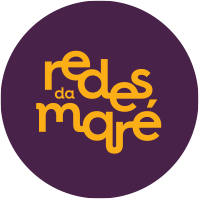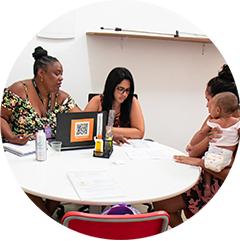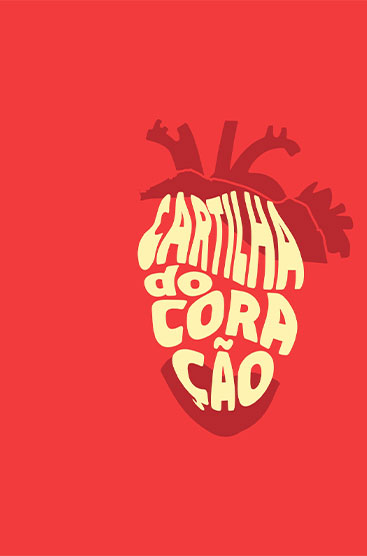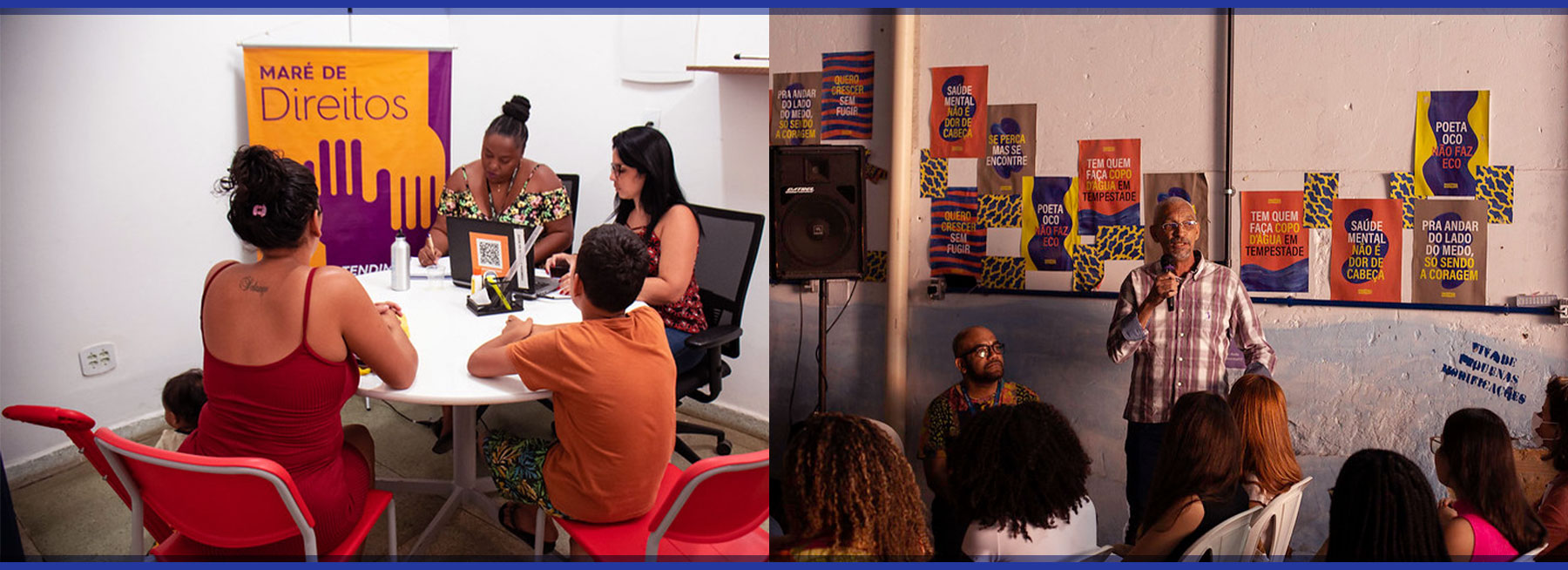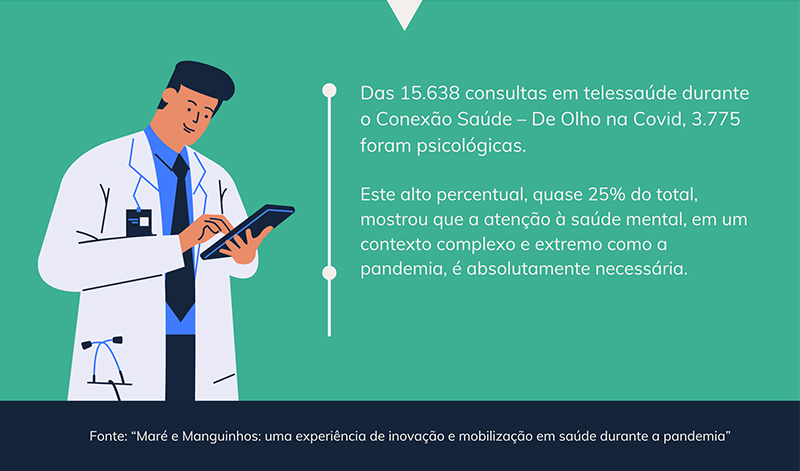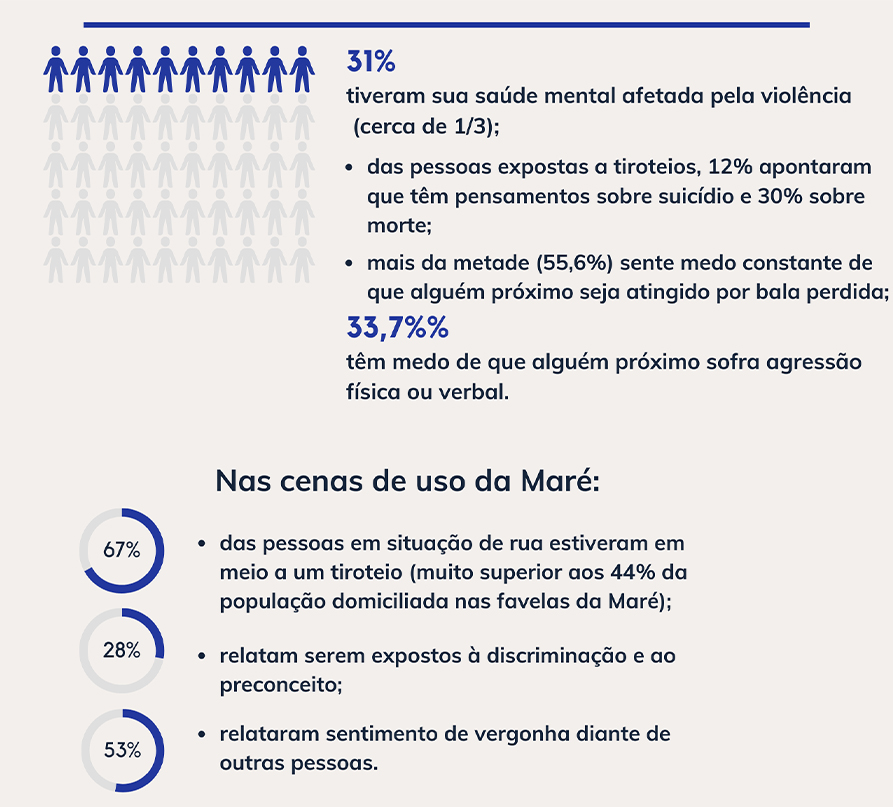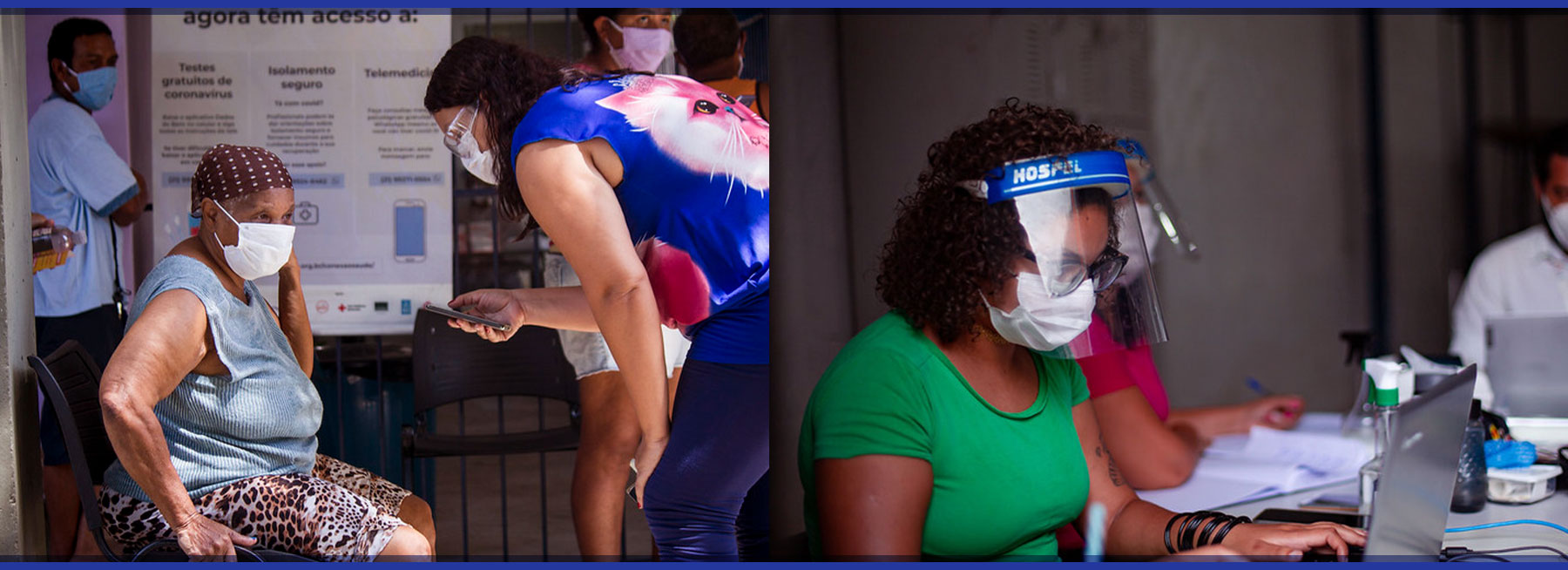However, the situation was already precarious in 2019, with family health teams experiencing salary delays, dismissals, and lack of basic supplies for proper functioning. This reduced Primary Health Care coverage to 50% that year. It was in this context that the pandemic began, without the structural conditions to prevent a worsening of mental health. Additionally, in the Maré Favela Complex, there was only one Family Health Support Center (NASF) team to support the seven health units.
Currently, there are three NASF teams in the region, but Redes da Maré team has been concerned about the lack of investment in mental health and its consequences. There's a shortage of NASF teams, responsible for support, and the Psychosocial Care Centers themselves lack infrastructure to assist residents in precarious situations, without proper conditions, supplies, or the necessary team to carry out mental health policies. It's important to note that the Maré Favela Complex lacks specialized mental health facilities for adults; there are only nearby facilities(CAPSi II Visconde de Sabugosa, CAPS II - Carlos Augusto Magal Psychosocial Care Center, and CAPSad III Miriam Makeba Psychosocial Care Center).
In this regard, the Mental Health Support Network will contribute to the development of strategies that address the ongoing high demand for mental health care, strengthening public facilities such as Psychosocial Care Centers (CAPS), CAPS for alcohol and other drug-related issues (CAPS ad), and Specialized Centers for the Homeless (Centro POP), among others.





